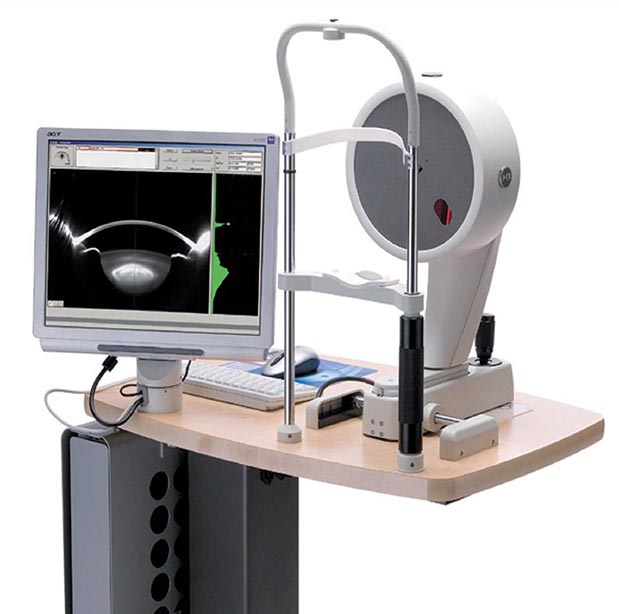WHAT ARE THE SYMPTOMS AND CAUSES OF CATARACTS?
COMMON CATARACT SYMPTOMS
Cataracts develop gradually and often go unnoticed until they begin to affect your vision significantly. Here are the common symptoms to watch for:
- Blurry Vision: A common early sign, causing objects to appear hazy or less sharp.
- Faded Colors: Colors may appear less vibrant and more washed out.
- Increased Glare: Sensitivity to light and glare, particularly noticeable when driving at night.
- Halos Around Lights: Seeing halos around lights, especially at night.
- Difficulty with Night Vision: Trouble seeing in low light conditions or at night.
- Frequent Prescription Changes: A need for frequent changes in eyeglasses or contact lens prescriptions.
- Double Vision: Seeing double images in one eye.
- Difficulty Reading: Reading may become challenging even with the use of reading glasses.
- Clouded Vision: Vision may seem as if looking through a foggy or frosted window.

Cataract Simulation
Cataract Causes and Risk Factors
Among all of the eye problems that can affect your vision as you age, cataracts are one of the most common.
As time passes, your eyes undergo changes, and among the myriad of age-related eye issues, cataracts emerge as a prevalent concern. The aging process triggers alterations in your eyes, heightening the likelihood of cataract development. This condition arises as the proteins within your lens degrade, leading to the formation of cloudiness that impairs vision. Cataracts hinder the passage of light through the eye lenses, thereby diminishing clarity of vision.
The risk of cataracts escalates with age, particularly beyond 60 years. However, it’s essential to note that symptoms may manifest earlier, potentially in one’s 40s or 50s. Various factors contribute to this risk, including familial predisposition, underlying health conditions such as diabetes, prior eye injuries, and cumulative exposure to ultraviolet rays from the sun over the years.
Diagnosis Cataracts
If you notice that your eyeglass or contact lens prescription requires frequent adjustments, it might be a signal that your cataracts are progressing. Should any of the symptoms mentioned resonate with you, it’s advisable to schedule an appointment with an ophthalmologist.
At Seibel Vision Surgery, our proficient ophthalmologists offer a range of diagnostic tests to ascertain the presence and severity of cataracts:
- Visual Acuity Test: This familiar assessment involves reading from a chart to gauge your distance vision. It may also involve a glare assessment, simulating sunlight or nighttime glare effects.
- Slit-Lamp Examination: By employing a slit-lamp or microscope, our ophthalmologists meticulously examine your cornea, lens, and iris for signs of cloudiness.
- Retinal Exam: Your eyes will be dilated to facilitate a thorough examination of the retina, enabling us to identify any abnormalities.
We also utilize cutting-edge technologies such as WaveScan and Pentacam. WaveScan technology provides detailed information about the unique characteristics of your eyes, while Pentacam captures thousands of images rapidly, revealing precise details about your cornea’s shape, structure, and thickness. Typically, the screening process lasts between 1.5 to 2 hours.


60 Second
Cataract Screener
Slowing the Process of Cataracts
Although cataracts can’t be completely prevented once they’ve begun forming, there may be steps you can take to slow down their progression. These include:
- Kicking the smoking habit to reduce the risk.
- Incorporating eye-healthy foods like leafy greens, orange-colored vegetables, cherries, strawberries, and salmon into your diet.
- Managing conditions such as diabetes, which can speed up cataract development.
- Shielding your eyes from harmful UV rays by wearing sunglasses when outdoors.
- Regularly scheduling appointments with an eye doctor to catch cataracts or other eye issues early on.
Even with all these precautions, cataracts can still catch you off guard.
Cataracts can disrupt many activities you enjoy, but you don’t have to wait until your vision deteriorates completely. Reach out to our skilled team of cataract specialists today.